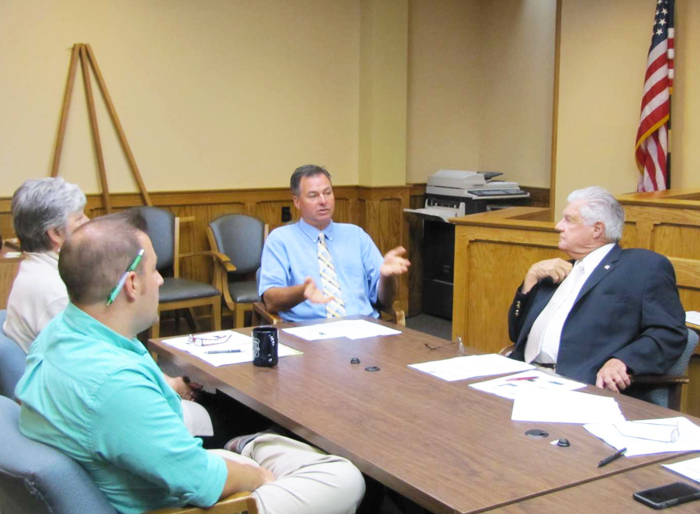Alternative septic systems coming, but questions remain


The septic systems of the future will remove nitrogen before it reaches groundwater, something the current concrete block cesspools underneath most homes cannot do. This will result in improved groundwater and surface water quality as a result, officials say.
But how much will they cost? And will homeowners be required to have one? And who will make that decision and what triggers it?
Those are some of the questions that remain unanswered, according to County Legislator Al Krupski (D-Cutchogue), who discussed that issue with the Riverhead Town Board last week.
The county legislature last month passed a resolution authorizing the county health department to amend its sanitary code to allow for the approval of “innovative and alternative on-site wastewater treatment systems.”
It’s considered to be the first major change to residential on-site wastewater technology since 1973, when the county first required septic tanks along with leaching pools, according to Walter Dawydiak, the health department’s director of environmental quality.
The county currently has more than 365,000 residential on-site septic systems, most of which are cesspools which do not remove nitrogen from the discharged water, and about 209,000 of them are located in environmentally sensitive areas, officials say.
Riverhead Councilman John Dunleavy said in places like South Jamesport, there are homes with cesspools located on the bay.
Cesspools are considered to be a leading cause of nitrogen pollution in water ways, and nitrogen is considered to be a leading source of low oxygen levels and sea life die-offs.
Despite this, for most people there’s still no means for approving the installation of one of the new “innovative” systems designed to reduce nitrogen discharge, Mr. Krupski said.
The county recently held two lotteries, one in 2014 and one this year, that will allow a total of 39 selected homeowners to receive one of 14 new alternative septic systems, which will be installed free of charge, with free maintenance and monitoring for five years.
The health department will in turn evaluate the types of systems that reduce nitrogen discharges best, officials say.
The July 27 county legislature resolution created a new Article 19 in the county sanitary code that will give the health department the authority to “promulgate procedures, protocols, and standards to evaluate, approve, register, oversee, and facilitate the use” of the alternative systems that will replace some of the existing septic systems, according to a release from County Executive Steve Bellone.
Testing and monitoring of the new systems will also allow the county to determine which of the new systems will be provisionally approved for use in additional homes throughout Suffolk County, the release says.
“This is the tough decision,” Riverhead Supervisor Sean Walter said to Mr. Krupski. “This is the decision when you talk to the homeowner and say you’re going to spend $20,000 for a septic system. Who’s forcing that? Are you passing it onto us? Because right now, the county regulates it.”
Mr. Dunleavy also raised concerns about the cost of the new systems.
“I think $20,000 is probably a little too high,” Mr. Krupski said. “As these systems become more commonplace, the price will be coming down.”
He said the county is trying to figure out which areas will be highest priority for the new alternative systems in the future.
He said the systems will be an alternative to having a sewer district in some areas, which he said is very expensive.
“My assumption is that they’re going to be significantly more expensive than the $4,000 cesspool rings you put in the ground,” Mr. Walter said.
Brad Hammond, Riverhead’s chief building inspector, said the building department currently determines if a home addition has increased the number of bedrooms, and if so, a permit for the expansion will not be issued and that person will be required to go to the health department to find out what type of septic upgrade they need for the building expansion.
He said the conventional cesspool systems are still permitted and the county has not done anything yet to say people can’t install new conventional systems.
Mr. Krupski said input from the towns will be important in determining the specifics of the new regulations.
One thing the new Article 19 will not do is allow for increased building density as a result of the improved sewer quality, Mr. Krupski said, adding that this was a great concern among county officials.
“Because of our concerns, they amended Article 19 to make it clear that this was not intended to increase density, only to increase water quality,” Mr. Krupski said. “That was the most important change.”
Photo caption: Legislator Al Krupski speaks at the Aug. 11 Riverhead Town Board work session. (Credit: Tim Gannon)








